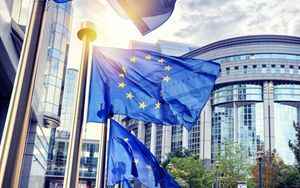(Finance) – One was held today industrial roundtable between the European Commission and business representativesvia videoconference, to launch the EU platform for joint gas purchases, the operational start-up of which is expected in 2023. The meeting followed yesterday’s adoption by the twenty-seven energy ministers of the regulation promoting solidarity between Member States through better coordination of gas purchases, reliable price benchmarks and cross-border trade in methane.
The regulation ensures the legal basis for bundling EU gas demand, making joint purchases and using infrastructure more efficiently, including EU LNG terminals. At the meeting, opened by the President of the Commission Ursula von der Leyen and chaired by Vice President Maros Sefcovic, high-level representatives of 32 companies from EU Member States and Energy Community Contracting Parties attended. High on the agenda was the need for genuine participation in the platform by industry, large and small players in the EU gas market. The platform, as explained in a note from the Commission, has the objective of “coordinating gas purchases, at the same time using the collective power of the EU, both at the political level and in negotiating capacity, to guarantee supplies from reliable partners to affordable prices for EU citizens and businesses.
In January, the Commission will convene the first official meeting of the Steering Committee, made up of EU Member States, to facilitate the coordination of the demand aggregation and joint purchasing process. “This year we have made great strides in diversifying our gas supply and substituting Russian fossil fuels. However, we know – said von der Leyen – that 2023 will be a more difficult year and that we may have to face – he warned – a potential deficit of almost 30 billion cubic meters of natural gas”. gas, we will use the EU’s economic and political clout to ensure better supplies for citizens and businesses. Today’s meeting marks the start of this process”, concluded von der Leyen.
In recent months, several memoranda of understanding have been signed by the EU with the main gas exporting partner countries. An Industry Advisory Group was also set up and met regularly to assist the Commission on the industrial dimension; and five regional groups were created to identify needs, opportunities for joint use of infrastructure and potential new suppliers. “We wasted no time: our preparation for next winter – Sefcovic explained in a press conference in the afternoon – it starts today. We have achieved so much this year to reduce the amount of Russian gas we use. The latest data also shows that we are on track to meet our 15% gas demand reduction target.. But we know that next year will bring new challenges”
